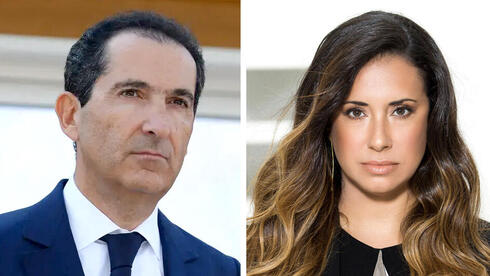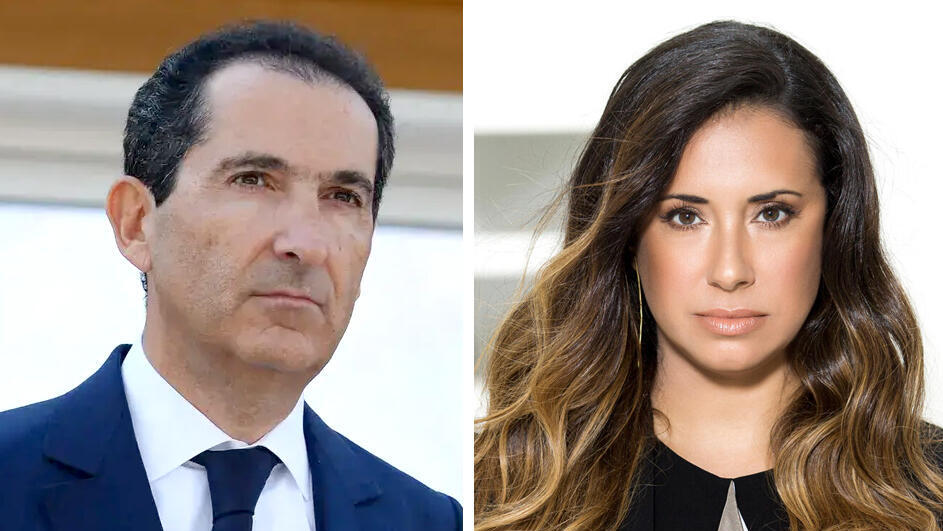
Altice considers selling HOT stake amid broader asset offloading
The telecom giant is weighing offers for a minority share, with full control possibly on the table later.
Patrick Drahi has hired Rothschild Bank to explore strategic options for the communications company HOT. Calcalist has learned that at this stage, Rothschild Bank will review several offers to acquire a minority stake of up to 40% in the company. However, the possibility of selling control of HOT may arise later, as Rothschild is expected to initiate discussions with potential buyers after Passover later this month.
In an official response to the news, spokesman Arthur Dreyfuss told Calcalist:
"Altice International confirms that it has received offers to acquire minority shares in HOT. Altice International will review each offer carefully, with one goal in mind: to build the future of HOT."
It should be emphasized that Rothschild has not yet presented HOT to potential buyers. If it does, it will only be after Passover later this month, and the initial discussions will be with entities that have already approached Altice. Only later will a decision be made on whether to proceed with offers beyond minority shares. Any potential sale of full control will depend on the offers received—if they arrive—and whether Drahi considers the price attractive. As of today, the group has not received any such offers and is not actively considering this option.
This development marks a significant shift in Israel’s communications market, which is already undergoing changes in ownership. In Bezeq, the Searchlight fund and David Forer sold 5.8% of their controlling shares last month, likely the first step toward exiting control of the company. In 2024, control of Cellcom was sold to the Fortissimo fund, which acquired 35% of the company’s shares for NIS 936 million. In 2022, a group led by Avi Gabbay and Shlomo Rodev purchased control of Partner in a deal worth $300 million.
It is not uncommon for companies to begin by selling minority stakes, only for the process to eventually lead to a sale of control. A recent example is the Soglowek family, which initially sought a partner by offering 40% of its meat company’s shares. By the end of the process, negotiations had evolved into a deal with the AP Partners fund for the sale of 70% of the company, with a future option to sell the remaining shares.
Altice is expected to seek a valuation of €2 billion for HOT. A transaction of this scale could involve a foreign investment fund specializing in telecommunications, a major local investment fund such as FIMI (possibly in partnership with institutional investors), or strategic players such as large infrastructure funds like the Noy Fund, which recently raised NIS 2 billion for a new fund. Additionally, foreign telecommunications companies may also be interested.
Altice is pursuing this move as part of a broader asset disposal strategy aimed at reducing its debt burden, which previously stood at €60 billion but has since decreased following a series of divestitures. For example, last August, Altice sold a 24.5% stake in British Telecom (BT) to Bharti Global, the Indian conglomerate owned by billionaire Sunil Bharti Mittal, for an estimated £3.2 billion. The deal was executed in two tranches of 10% and 14.5%.
Other sales included a news channel and radio station to shipping magnate Rodolphe Saadé, as well as a $1 billion investment from Abu Dhabi's sovereign wealth fund, ADQ, into the Sotheby’s auction house, which Drahi owns.
The Altice Group operates through three main divisions: Altice USA, which holds assets in the United States; Altice France; and Altice International, which owns 100% of HOT. The company also fully owns Altice Portugal and Altice Dominican Republic, which hold the largest and second-largest market shares in their respective countries. Additionally, in August, Altice sold the video advertising company Teads to Israel’s Outbrain for $1 billion, after acquiring it in 2017 for $307 million. Earlier in March, it sold Altice Media for €1.5 billion.
Patrick Drahi (62) was born in Morocco to a Jewish family and moved to France as a teenager. After studying engineering, he worked at Philips before founding a cable company in southern France in the 1990s. He established Altice in 2002, and in 2014, it was listed on the Amsterdam Stock Exchange at a valuation of €6 billion, quickly doubling in value. However, its stock later plummeted by 80%, prompting Drahi to repurchase public shares and take the company private. While HOT is a significant player in the Israeli market, it is not a major part of Altice's global operations.
Drahi acquired HOT shares between 2009 and 2012. He first bought stakes from Bank Leumi, the International Bank, and the Delek Group for NIS 848 million, followed by a purchase from the Fishman Group for NIS 249 million and part of Yedioth Communications' holdings for NIS 652 million. Additional shares were acquired through a tender offer for NIS 342 million, bringing his ownership to 65%. He later bought out the remaining public shares for NIS 1 billion, delisting HOT from the stock exchange at a total valuation of NIS 3.1 billion—essentially his total investment in the company by 2012.
Altice’s financial reports also mention HOT. In its 2023 annual report, Altice noted that the Iron Swords War is expected to impact HOT’s operations, though the extent of the effect remains uncertain.
In 2022, HOT generated €1.196 billion in revenue, but this declined to €1.07 billion in 2023, partly due to the war. Fourth-quarter revenue in 2023 fell to €255 million, compared to €305 million in the same quarter of 2022. EBITDA (earnings before interest, taxes, depreciation, and amortization) also declined from €409 million in 2022 to €353 million in 2023. If EBITDA remains around €340 million, a €2 billion valuation would imply a multiple of seven times EBITDA. In the third quarter of 2024, HOT’s revenue dropped to €246 million, compared to €267 million in the same period of 2023, while EBITDA fell to €85 million from €87 million.
HOT, Israel’s second-largest communications company, operates in all areas of telecommunications, including television, internet, mobile, and landline services, catering to both private and business customers. Recently, the company expanded into the energy sector, offering electricity to private consumers as part of Israel’s electricity reform. It is the only private telecommunications provider in Israel with extensive 5G network deployment and a broad fiber-optic customer base. Tal Granot Goldstein has served as the company’s CEO for a decade.
HOT also holds a 23% stake in the IBC fiber project, which has already connected over 2 million households in Israel. As Calcalist previously reported, last September, HOT and the Israel Infrastructure Fund (IIF) engaged the investment bank MNS to find buyers for their stakes in IBC. Effectively, the two companies are selling control of the fiber project. IIF, Cellcom, and HOT each own a 23.3% share in a joint partnership that collectively holds 70% of IBC’s shares. If a buyer acquires HOT’s and IIF’s stakes, they will gain controlling ownership of the company.















